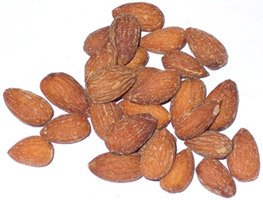Smart Training Tips
Almost every one of us who is at this website has some vested interested in training the body. Whether you are looking to build muscle mass, lose fat, increase your endurance capacity, or simply break into that new workout program that you've been telling yourself you'd get to for years, you're on the hunt for body training information.
You read about how to eat to make your muscle grow, you read about the best type of cardio to melt off those love handles that seem to have taken up permanent residence at your sides, and you read about new training techniques that will send your strength levels through the roof.
Today we're not here to talk about muscle fibers though, nor are we going to talk about just why those fat cells are so incessant with their attachment to your body. We're not going to discuss how much protein is optimal if you're trying to lose fat, and we most certainly are not looking at why steady state cardio sucks—because heaven knows there are enough articles on that already.
Today we are here to talk about training an entirely different part of your body—your brain. Yes, that's right, if you want to get optimal results from your training, you need to consider your mental state.
If you've ever had one of those times where you cannot remember where you put your keys if your life depended on it, only to figure out a few minutes later that you are, in fact, holding them in your hand? Don't feel too bad, we've all done it (although I'm sure some of you reluctant to admit to it).
Mental fuzziness or 'brain fog' is something that happens—especially when initially starting a low-carb diet. For some of us, it happens a whole heck lot more often than for others. If this is you and you're finding yourself a little embarrassed at your mental absentmindedness, then you definitely need this information.
For the rest of you, these are still things you need to consider. For the amount of time some of us spend training our bodies, it only makes sense to make sure your brain is in top notch condition as well.
1. Chow Down On Almonds
You likely know that nuts provide a health source of dietary fat—which is a must to keep hormone levels optimal and keep your body running properly. If you make the choice of almonds, you'll also be improving your memory (should help for that key problem described earlier).
To max out the benefits almonds provide, opt for almond oil mixed with milk. This combination in particular is going to especially enhance your memory ability.
2. Mix Your Creatine With Apple Juice
Most people are into the habit of taking their creatine with some form of liquid carbs since this will dramatically increase the rate at which it's delivered to the muscle tissue. To one-up the benefits you'll receive, opt for apple juice.
Apple juice contains acetylcholine, a neurotransmitter in the brain that also serves to boost your memory power. If you don't take creatine, then just start making a cup of apple juice part of your day.
3. Turn Off Late Night TV
Researchers have noted that the single biggest determinant of how well students do in their courses at Harvard is not how hard they study, nor is it their natural intelligence ability. It's how much they sleep. Your sleep really does have that big of an effect when it comes to your ability to think, remember, and process information.
Do yourself a big favor this coming week and cut that last hour of late-night TV out. Your mind will thank you many times over.
4. De-Stress Yourself
From all that reading you've done on fat loss and cortisol, you may already know that stress causes your body to release more cortisol, and this cortisol then makes that stomach fat really cling on for dear life. For that reason alone you should be doing whatever you can to relieve your stress.
Now, in addition to that, stress also is a downer when it comes to memory. If you're highly stressed, chances are you're going to be forgetting things—which will then only add to the stress! Talk about an unpleasant cycle. Finding activities to do that reduce your stress levels is critical for optimal brain health. Whatever does it for you, do it often.
5. Don't Eat!
Now, as far as your muscle-building goals go, I wouldn't recommend not eating. BUT, as far as your memory is concerned, doing the odd fast for a day can prove to be very beneficial.
Fasting helps to clean and detoxify the body, thus removing the drain on our brain power. It also helps to rid you of negative emotions such as anger, grief, worry and fears—all of which will create mental burdens.
It doesn't take long for the benefits to kick in here—one day is definitely enough, and not to worry, your muscles won't be eaten away with one day of fasting. Don't believe me? Check out some of the Intermittent Fasting stories out there. Some of these guys get phenomenal results from eating within a four to six hour window and fasting for the remainder of the day.
6. Do Mental Exercise
Your body needs regular exercise, as does your mind. As the old saying goes, if you don't use it, you lose it. This couldn't be truer. Getting your mind involved on a regular basis in tasks that are mentally stimulating will go a long way toward keeping your mind sharp and improving your memory.
Some good activities to do include scrabble, crossword puzzles, learning new hobbies or skills or strategy computer or video games.
7. Take Up Meditation
Many bodybuilders would never consider meditation as they crave more intense activities. do not underestimate the rewards meditation can offer though.
First, it will help reduce stress. As we discovered earlier, stress plays a primary role at keeping a lean waist, as well as increasing your memory ability.
Further, meditation will also help to lower blood pressure, slow your respiration rate, and decrease muscle tension—all of which will work towards improving your health and your workouts.
8. Cut Back On Sugar
It's no secret that if you're trying to optimize your body composition, sugar should be removed from your diet as best as possible. Apart from the pre- and post-workout periods, sugar is going to cause a spike in insulin, sending your blood sugar levels up for a big high, followed by a big crash. Not only does this wreak havoc on your energy levels but it can also cause you to store more body fat.
In addition to this, when that crash happens, many of us will experience a variety of mental defects including memory loss, claustrophobia, and intense feelings of sleepiness.
To stay on a steady keel, opt for whole grains rather than processed foods and use Stevia or another artificial sweetener when needed.
9. Change To Whole Wheat
Apart from the difference in fiber, when you eat whole wheat you'll also be getting a good dose of lecithin, which helps prevent the arteries from growing hard. If this happens, you can see a decrease in mental functioning, so it's critical to take steps to decrease the chances that this happens.
Lecithin
Lecithin is a compound containing two fatty acids and choline. It is the most common phospholipid in the body.
10. Don't Avoid Night-Time Eating
Far too many people out there are still stuck in the mindset that eating before bed will make you gain weight. This couldn't be further from the truth. Sure, if you eat excess calories at night you will gain weight, but if these calories are worked into your daily total, they will not have any effect on your ability to shed the pounds.
Even more is that eating at night, provided it's a light meal and consists of milk, meat or whole grains, can actually help you sleep better, reduce stress and improving brain function.
11. Sex
Like you needed another reason to have more sex. But, in addition to stress relief, sex also serves to strengthen our brain. When you're highly sexually creative, it will increase your daytime imagination, which is correlated with better performance when it comes to visualization and tasks involving associations.
So, going back to that hour of TV, why not decrease it yet another hour and engage in some physical exercise apart from the gym.
12. Take A Vitamin B-Complex
Finally, the last way to promote healthy thinking will be ensuring you are getting enough of the Vitamin B-complex.
This nutrient is found most commonly in vegetables, whole grains, turkey, liver, potatoes and tuna. In addition to supporting a healthy brain, it's also going to work towards optimizing the metabolism, maintaining healthy skin and muscle tone, improving the immune system response, and promote cell growth and division.
One thing to note though is that you'll want to stay away foods high in starch or white bread, as these tend to deplete the vitamin B complex from the body.
View Vitamin B Products Sorted By Top Seller Here.
Conclusion
So, evaluate your diet and lifestyle. Are you doing everything you can to take care of a healthy mind? If not, write these down—you don't want to forget them!



